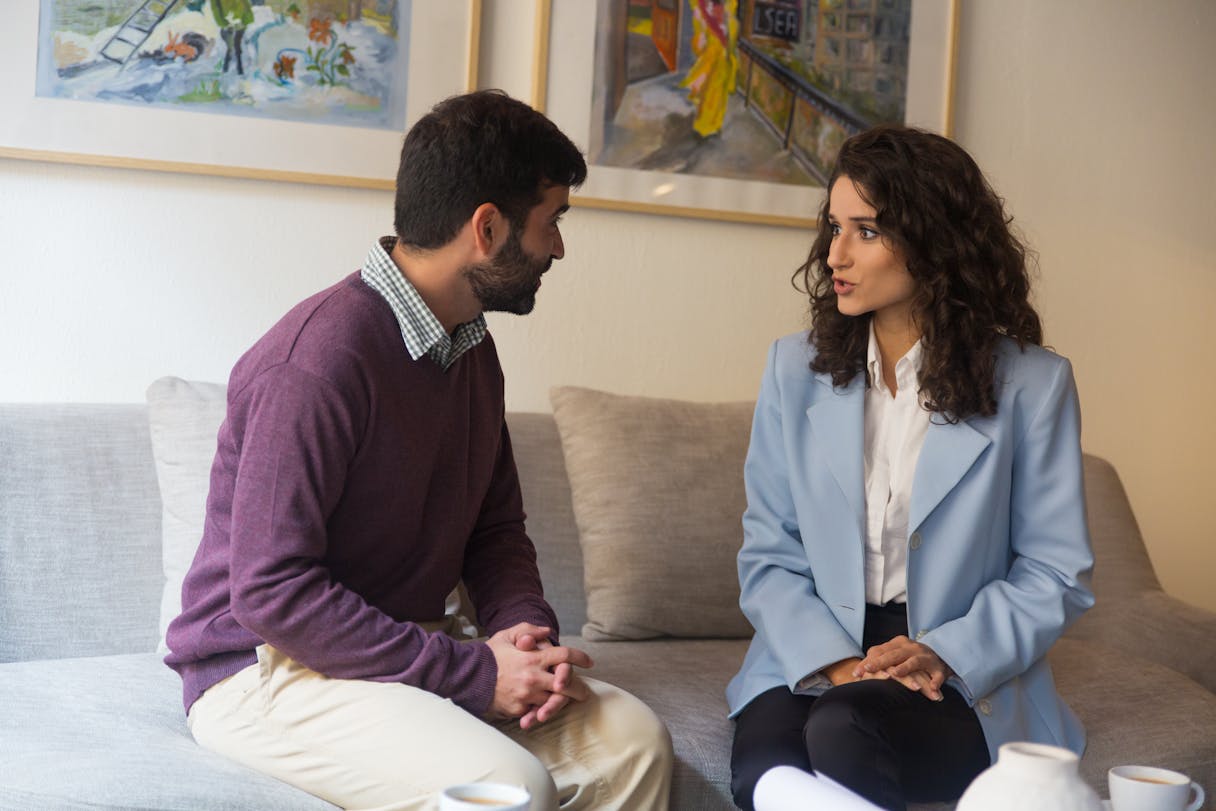How Much Does Couples Therapy Cost?


Romantic relationships require some degree of effort for them to endure. Putting in work to strengthen your bond shows your partner you care and you don’t take them for granted. That said, some relationships require a bit more effort than others. This could arise from any number of reasons such as diverging life goals, loss of trust, or even individual issues outside of the relationship that, in turn, affect the relationship.
Whether you need guidance to mend a relationship or simply looking to sustain a healthy one, professional support from a qualified therapist can offer the assistance necessary for you and your partner to make the most of your journey through life together.
Couples therapy is a form of counseling that helps romantic partners gain insight into their dynamics, identify sources of conflict, and develop strategies for communication and resolution.
In this article, we’re breaking down the cost of couples therapy so you know what to expect as you seek out professional support.
What can I expect to pay?
The cost of couples therapy can vary widely depending on several factors, including the location of the therapist, their level of experience and credentials, and the length of each session. In-person couples therapy sessions in the United States can range from $100 to $300 per hour. However, online sessions, which studies show are just as effective as in-person meetings, are more affordable and can cost as little as $65 a session.
Cost Factors
Some of the main factors that can influence the cost of couples therapy include location, therapist credentials and expertise, online versus in-person therapy, and duration.
Location
Costs will vary state by state, region by region by region, and even city by city, reflecting the living cost of the area your therapist serves. As you can imagine, therapists working in high-cost cities like New York and San Francisco will charge more than low-cost areas in the South or Midwest.
Therapist credentials and expertise
Therapist qualifications span a spectrum, and you can expect to pay more for greater expertise. Further, psychologists may command higher fees compared to master's-level clinicians, although this is not always the case. Also, the duration of a therapist's practice can influence their rates, with more seasoned professionals generally charging higher fees.
Online versus in-person therapy
Therapists who maintain a private practice often charge the same for both online and in-person therapy sessions. However, strictly online couples therapy, which is done through a telehealth portal, is often more affordable as they typically utilize subscription-based models.
It’s worth noting that some private practice therapists may also offer reduced rates through sliding scales. If you have a specific provider in mind, reach out and inquire about available options.
Duration
Therapy sessions come in varying lengths, ranging from 45 to 120 minutes, with the average session lasting approximately 50-55 minutes. Couples therapy commonly extends over a 12-week period. Some therapists may provide a package deal, offering a bundled price for those who choose to pay for multiple sessions at once rather than individually.
Is couples therapy covered by insurance?
It all depends on the specifics of your plan. If one or both partners has been diagnosed with a mental illness, then insurance may pay for treatment. You should refer to the details of your coverage plan or contact your insurance company for a definitive answer.
The good news is, if you have an FSA or HSA, then you can often use these funds to pay for couples therapy, reducing your direct out-of-pocket expenses.
What are you paying for in a couples therapy session?
For some, couples therapy can prove to be a significant financial investment so it's important to understand what you're paying for. Going to couples therapy can provide you and your partner with several benefits including improved communication, intimacy building, conflict resolution, and individual growth.
Improved communication
One of the primary goals of couples therapy is to help partners communicate more effectively and empathetically with one another.
Active listening techniques: Couples therapy often involves teaching partners active listening skills, allowing them to fully understand each other's perspectives without judgment. This fosters a more empathetic and open line of communication.
Effective expression: Therapists guide couples in constructively expressing their thoughts and feelings. This includes learning to communicate needs, desires, and concerns without resorting to blame or criticism.
Clarifying misunderstandings: Couples therapy provides a platform to address and clarify misunderstandings. Therapists help partners navigate through communication breakdowns, ensuring that messages are accurately conveyed and received.
Intimacy building
Therapists help couples enhance emotional and physical intimacy, creating a deeper connection between partners.
Emotional connection: Therapists work with couples to deepen their connection by encouraging vulnerability and emotional expression. This can create a safe space for partners to share their innermost thoughts and feelings.
Physical connection: Intimacy goes beyond emotional closeness; couples therapy addresses physical intimacy as well. Therapists may guide partners in understanding each other's needs and desires, enhancing the physical aspect of their relationship.
Building trust: Strengthening emotional intimacy often involves rebuilding or reinforcing trust. Therapists assist couples in developing trust through effective communication, empathy, and understanding.
Conflict resolution
Couples therapy can help partners identify and resolve sources of conflict, leading to a more harmonious relationship overall.
Identifying root causes: Couples therapy helps partners pinpoint the underlying issues that contribute to conflicts. By addressing these root causes, therapists guide couples toward long-term resolutions rather than surface-level fixes.
Effective communication during disagreements: Therapists teach couples strategies for navigating disagreements constructively. This includes managing emotions, avoiding escalation, and finding compromises that satisfy both partners.
Establishing healthy boundaries: Couples therapy may involve setting and respecting boundaries, providing a framework for respectful interaction and conflict resolution.
Individual growth
Self-reflection: Couples therapy encourages individuals to reflect on their own behaviors, beliefs, and patterns. This introspection promotes personal growth by promoting self-awareness and understanding.
Exploring personal goals: Therapists may guide partners in identifying and pursuing personal goals. This exploration can contribute to individual fulfillment and, in turn, positively impact the overall relationship.
Enhancing emotional intelligence: Individuals often develop greater emotional intelligence through couples therapy, learning to recognize and manage their own emotions and empathize with their partner's feelings.
Is couples therapy worth it?
Ultimately, the decision to pursue couples therapy is a personal one that depends on the unique circumstances of each relationship. However, many couples find that the benefits are well worth the investment of time and money. In fact, findings from a Verywell Mind survey reveal that 94% of those participating in couple therapy view it as a valuable investment, and 83% deem it a top priority in their relationship.

Relationship Anxiety: Understand the Signs and Ways to Cope

What To Do If You’re Feeling Underappreciated by Your Partner

How to Talk to Your Partner About Couples Therapy

Call 911 if you’re having a
mental health emergency
Text Home to 741-741 if you're in emotional
distress and need immediate support
Call or text 988 Suicide &
Crisis Lifeline. Chat service
is available at 988lifeline.org.